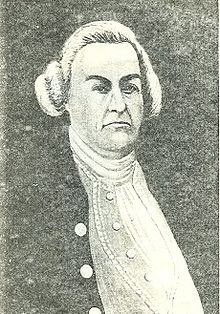In 1766, the Massachusetts House demanded to know what Ruggles had been thinking. He told them. The legislature voted to reprimand its former speaker on 12 February.
Ruggles then asked his colleagues to allow him to publish his reasons for his conduct in the legislative record, and they said yes. A week later, after Ruggles submitted his case in writing, they voted no.
On 3 March, Ruggles read that same memorandum to the town meeting at his home in Hardwick. His neighbors voted that his reasons were “sufficient to vindicate his conduct.” Finally, on 5 May 1766, Ruggles had his case published in the Boston Post-Boy.
His arguments were:
- “The petition agreed upon by the congress to be presented to his majesty not being conceived in terms clearly enough expressive of that duty and loyalty which are due to the best of sovereigns.”
- “That it is more regular, constitutional and conformable to the constant practice of the colonies to have their petitions and remonstrances to the King and Parliament of Great Britain signed by the Speaker of their House,” not by a congress representing multiple colonies.
- “That the signing said addresses by the committees of the several colonies which attended the congress, and who were empowered to sign the same, could by no construction come up to a general address from the colonies” since so few colonies were officially represented in New York.
- “A matter of so great importance to the colonies and of so delicate a nature as the open and avowed claim of an exclusive right of taxation (however true) to be asserted in addresses to the King and Parliament for relief from an Act made by this very Parliament was a measure I could not bring myself to adopt.”
The people of Hardwick continued to support Ruggles. They reelected him as their representative to the General Court and kept doing so until 1770, even after he voted to rescind the House’s circular letter of 1768.
In 1774 the ministry in London made Ruggles a mandamus councilor; Mercy Warren made him “Brigadier Hateall” in her satirical play The Group. During the siege of Boston he led a Loyalist militia. Ruggles evacuated the colony and died in Nova Scotia in 1795, thirty years after the Stamp Act Congress.

No comments:
Post a Comment